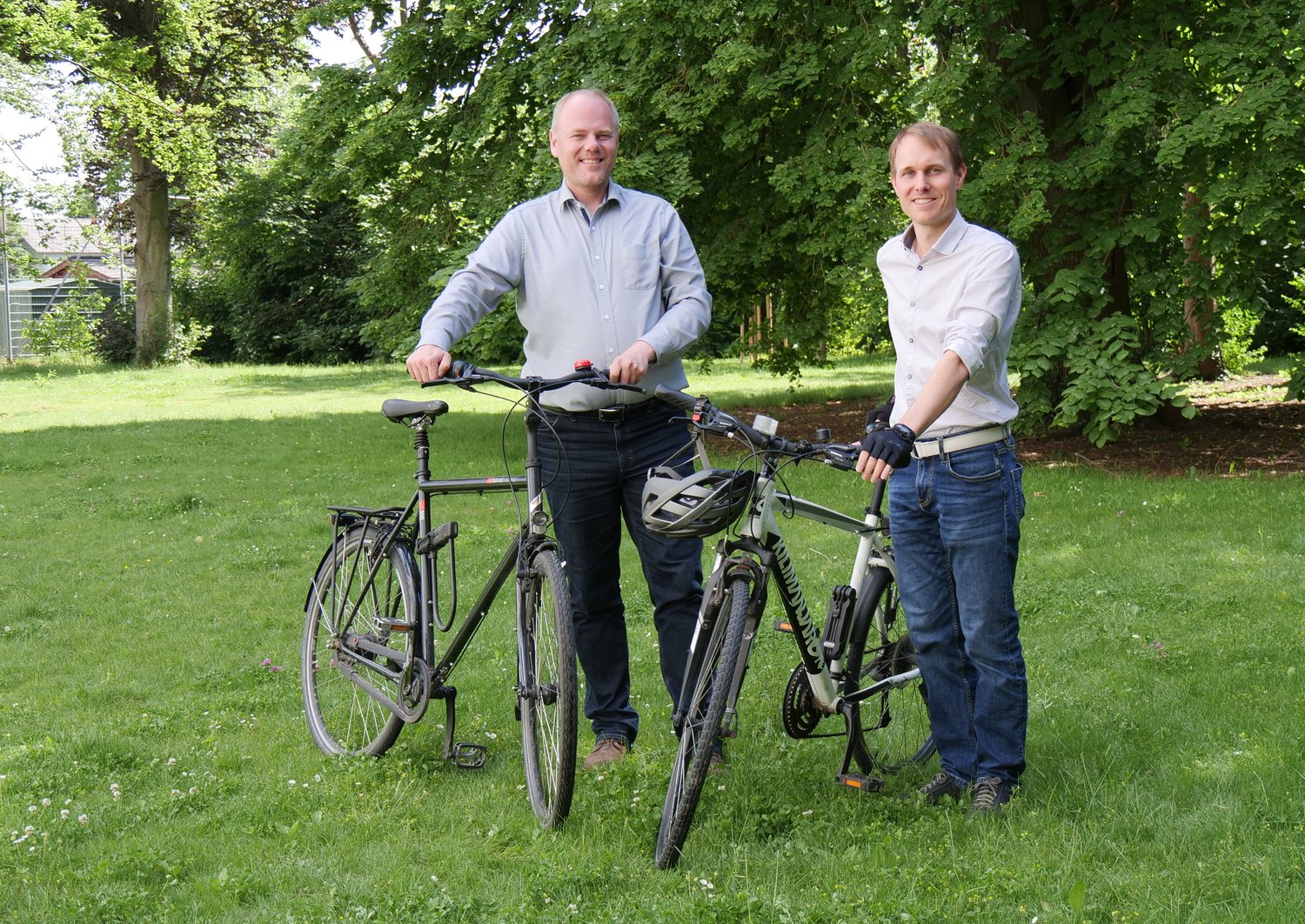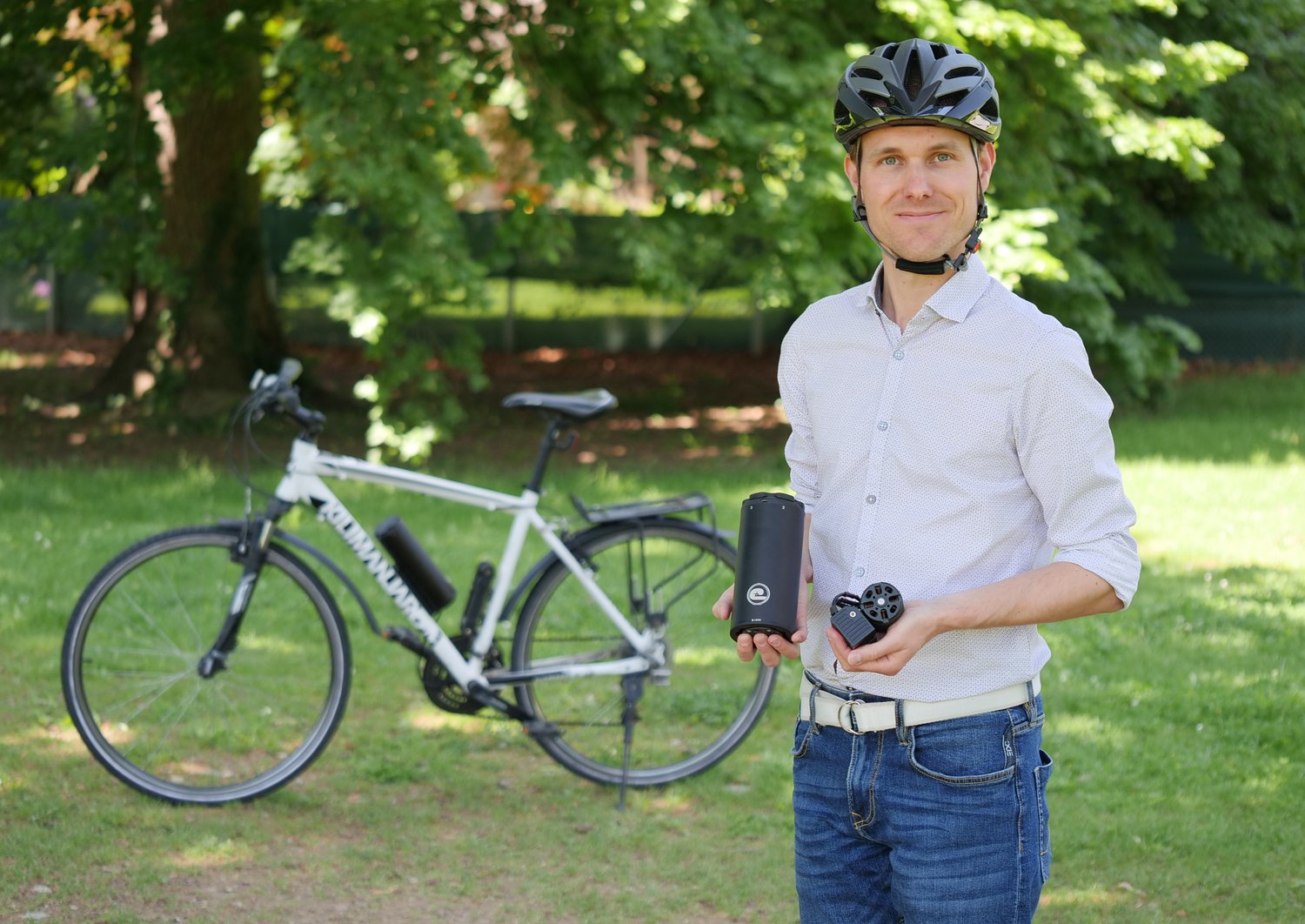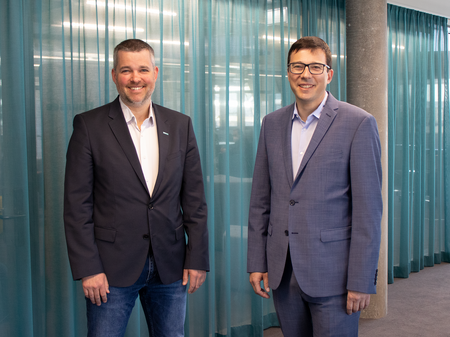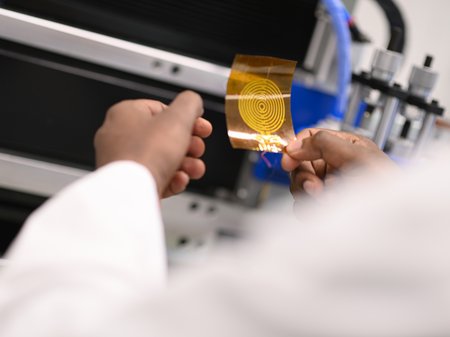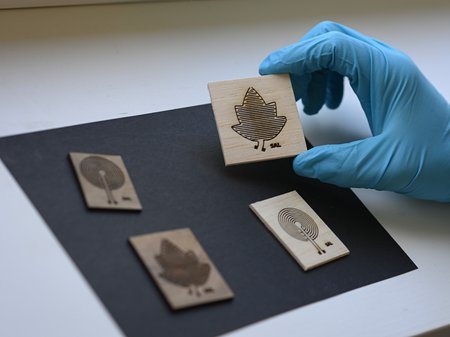People ride their bikes downhill to the city center, equip their bikes with a separate electric drive, get a charged battery from the rental station and ride home uphill with the support of the motor. This is how the developers of "Bat2Share" envision the future of mobility in the city. While the bike and drive are privately owned, the batteries are shared with others - "Battery as a Service" (BaaS) is the name of this concept, as the battery is only lent out when needed, when you can't or don't want to pedal yourself at the moment. As with many other sharing applications, the rental is handled via smartphone app and contactless data transfer. You simply return the empty battery to the rental station and exchange it for a full one as needed. An intelligent charging algorithm ensures that a charged battery is always available.
Cost and carbon footprint benefits
It is then no longer necessary to purchase an expensive e-bike, as the conventional bike can be equipped with a cheaper retrofit kit from GP Motion and the battery can be borrowed. "In terms of environmental friendliness, the BaaS system also has advantages over using e-bikes with built-in batteries," explains Herbert Hackl, a researcher in the Coexistence & Electromagnetic Compatibility (CEMC) group at Silicon Austria Labs (SAL) in Graz. Reasons for this are the emissions generated during the production of the e-bikes - especially the battery - their short lifespan and the emissions during energy generation to charge the battery. "The recycling of old batteries from electric vehicles is a general problem that is quickly gaining relevance. In contrast, BaaS providers can monitor the condition of all batteries and feed them individually to a second-life application or recycling at the optimal time."
The charging station itself is to be operated self-sufficiently in terms of energy by means of photovoltaics. Used batteries, which are no longer good enough to serve as pedal power but still have enough charging power to store energy from renewable energy sources in conjunction with other old batteries, are used for on-site energy storage.
Prototype by early 2023
The "Bat2share" project is a funded project from the third call for proposals of the Climate and Energy Fund's "Zero Emission Mobility" program. A team of 14 researchers from SAL, erfideo and GP Motion is investigating the extent to which controlled charging processes, optimal storage and cyclization can maximize the usage intensity of e-bike batteries, extend their service life and reduce the number of batteries in circulation. The goal is to develop and test the basic hardware and software components of the Battery-as-a-Service system with energy-autonomous charging and changing stations. The first laboratory demonstrator is scheduled for completion in spring 2023 and will then be tested in realistic operation at SAL's Villach site. The installation of public charging stations is planned in a follow-up project. Additional partners are currently being sought for this purpose.
